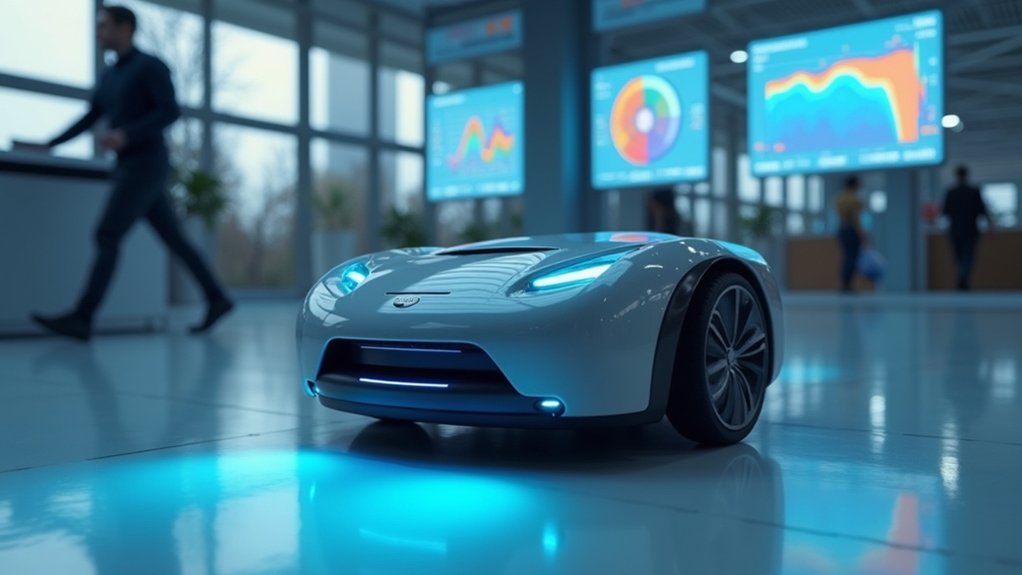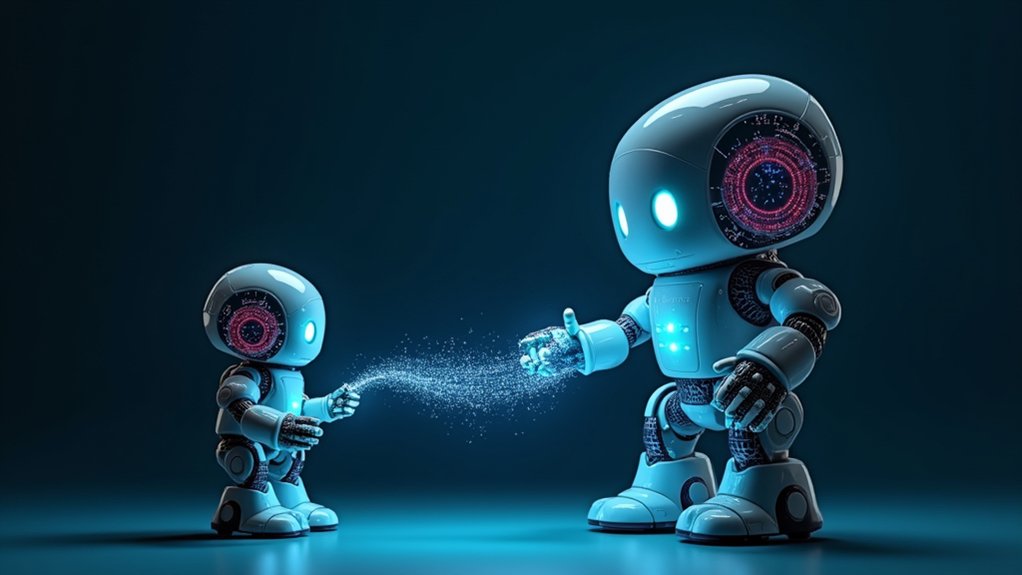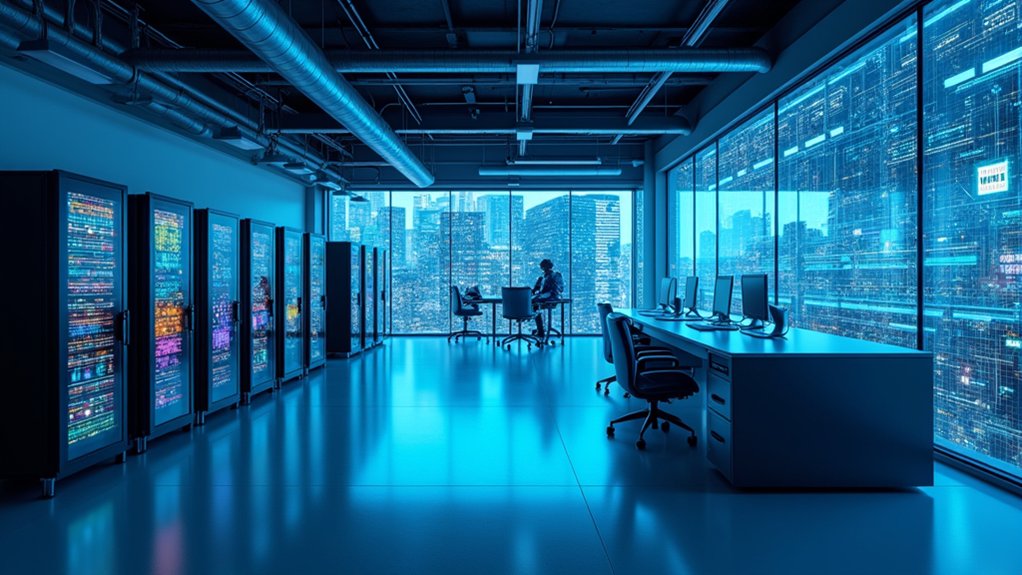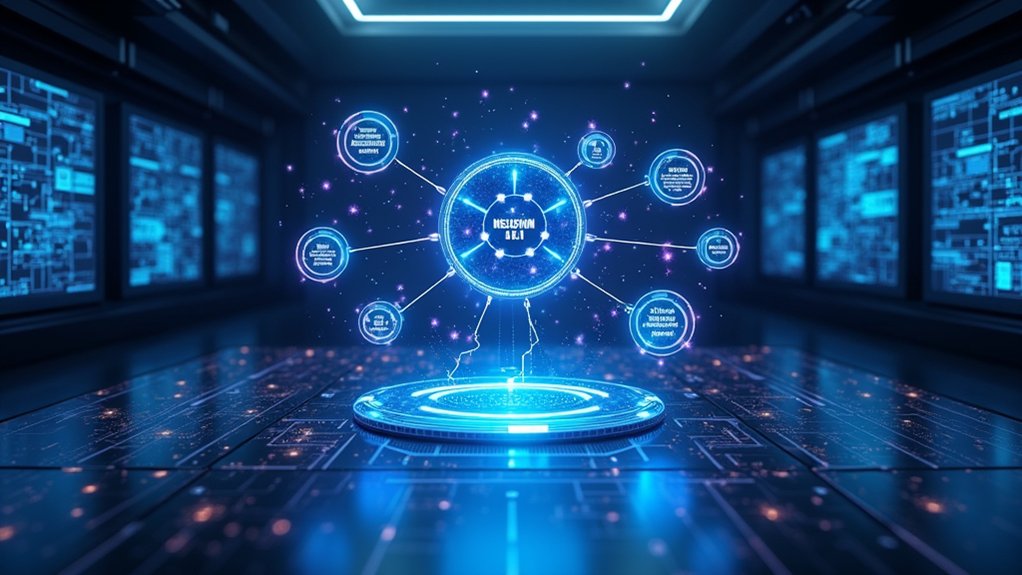AI cleaners are revolutionizing the cleaning industry with smart technology. These autonomous robots use sensors to detect dirt and navigate spaces efficiently. Companies report 30% faster cleaning times and 20% less product waste when using AI solutions. The technology creates optimized schedules, focuses on high-traffic areas, and reduces labor costs by up to 20%. Modern cleaning systems also use 25% less water while maintaining 99.9% cleaning coverage. The benefits extend beyond just cleanliness.
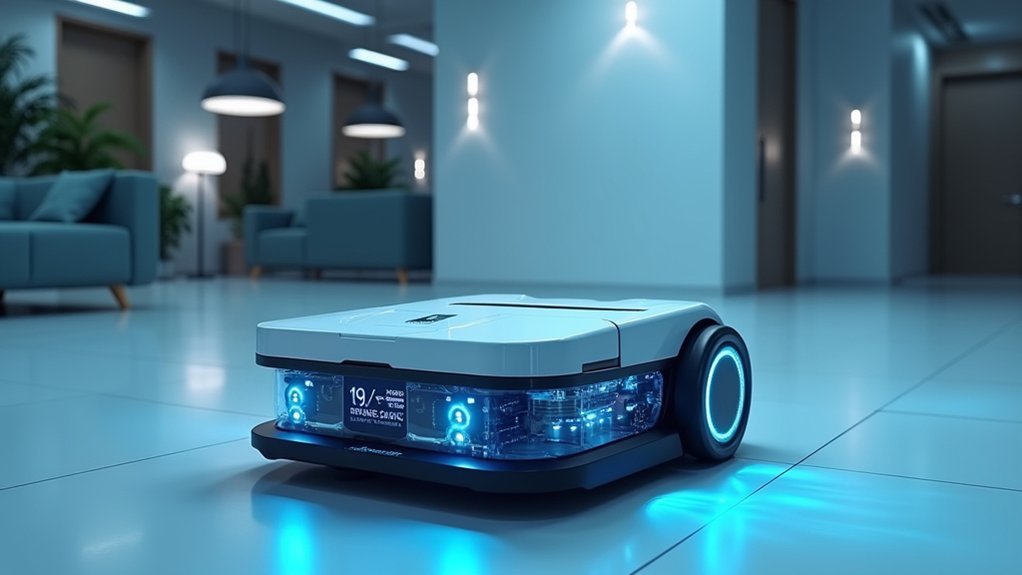
While traditional cleaning methods continue to evolve, AI-powered cleaning technologies are revolutionizing the industry with remarkable efficiency. Autonomous robotic cleaners now navigate spaces using artificial intelligence, working alongside smart sensors that monitor cleanliness in real time. These systems don't just clean—they learn, creating optimized schedules and identifying high-traffic areas that need extra attention.
The numbers show impressive results. Companies using AI cleaning solutions report 30% less cleaning time and up to 20% reduction in product waste. Equipment downtime has dropped by 25% through predictive maintenance, while labor costs have decreased by 15-20%. These smart systems also cut energy usage by 10-15% through better resource allocation.
AI cleaning solutions deliver remarkable efficiency: 30% faster cleaning, 20% less waste, and 15-20% reduced labor costs.
Quality improvements are equally significant. AI guarantees 99.9% coverage of cleaning areas and maintains consistent standards across multiple locations. The technology adapts to environmental conditions and continuously improves through data analysis. Extensive dashboards track performance while predictive analytics help allocate resources efficiently. These systems require JavaScript enablement to function properly with their web-based interfaces and monitoring tools.
Health and safety get a boost too. AI directs special disinfection protocols to high-risk areas and offers touchless solutions that reduce contamination. The systems monitor air quality and automatically report compliance with health regulations. They can even detect potential hygiene issues before they become problems. Similar to healthcare applications, these cleaning technologies use predictive analytics to identify disease risk patterns in high-traffic areas.
The environmental benefits can't be overlooked. AI-optimized cleaning uses 25% less water and 30% fewer chemicals. The precision navigation capabilities allow these systems to follow efficient cleaning routes that minimize carbon footprints, while smart systems help with waste sorting and recycling.
Users enjoy personalized cleaning preferences, mobile apps for on-demand requests, and AI chatbots for immediate support. Cleaning schedules can be customized based on feedback, and some systems even include game-like elements to encourage cleanliness.
The combination of improved efficiency, better cleaning results, health benefits, and environmental advantages makes AI cleaning technology a significant advancement in facility maintenance. As these systems become more affordable and widespread, they're changing how we think about cleanliness in both commercial and residential settings.
Frequently Asked Questions
How Much Does AI Cleaner Cost?
AI Cleaner offers several pricing options.
There's a free version with limited features.
The Basic subscription costs $4.99 monthly or $29.99 yearly, providing unlimited cleanings and AI duplicate detection.
The Premium plan is priced at $9.99 monthly or $59.99 yearly, adding advanced AI algorithms and priority support.
For businesses, the Enterprise plan offers custom pricing with dedicated account managers and API access.
Is AI Cleaner Compatible With All Operating Systems?
AI Cleaner isn't compatible with all operating systems.
It works on Windows 10 and 11 (both 32-bit and 64-bit), macOS 10.14 and newer, iOS 13+, and Android 8.0+.
The software requires specific minimum hardware: 4GB RAM for Windows and 2GB for Mac systems.
While not universal, AI Cleaner offers cross-platform features including cloud sync and a web interface for broader access.
Can AI Cleaner Work Offline?
Many AI cleaners can work offline after initial setup.
These apps process data locally on the device without sending information to external servers. Offline functionality provides better privacy protection since sensitive data stays on the device.
However, offline cleaners may have limitations compared to online versions. They can't access cloud-based improvements, might work more slowly, and have reduced ability to detect new threats without internet connection.
How Often Should I Run AI Cleaner?
Experts recommend running AI cleaner based on device usage. Heavy users should run it daily, moderate users 2-3 times weekly, and light users weekly.
Users should clean more frequently if storage space drops below 15% or if performance issues occur.
Best practices include monthly system scans, weekly cache cleaning, and quarterly app removal.
Automated scheduling can optimize cleaning times based on device idle periods and user habits.
Does AI Cleaner Collect User Data?
Yes, AI Cleaner does collect user data. According to its data collection practices, the service gathers usage details, IP addresses, cookies, and device information.
It also collects publicly available photos, user preferences, and settings. The company states it implements security measures, doesn't store personal information, and retains data only as needed for business purposes.
Users have rights to manage cookies and request privacy controls.
